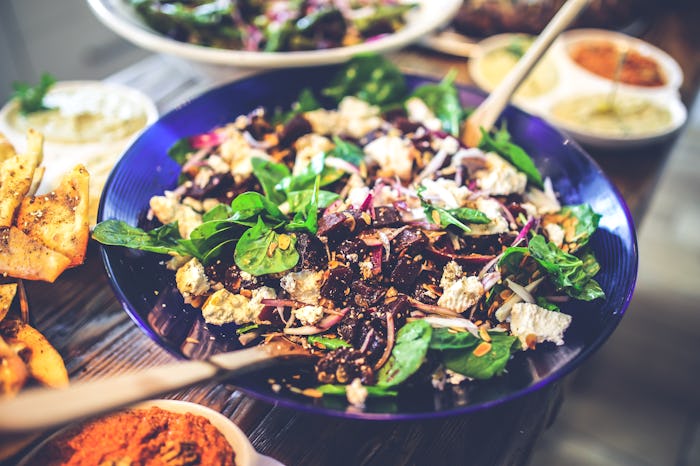Life

How Many Calories Should You Eat When You’re Pregnant? Here Are 3 Things To Keep In Mind
When you’re pregnant, the question of what constitutes a healthy diet may be one of the most confusing aspects of your condition. Are you really “eating for two,” or should you stick to your normal eating habits? At what point should you actually try to gain weight, and how many calories should a pregnant woman consume anyway? The answer to these questions, as with so many things pregnancy related, is: it depends.
Your current stage of pregnancy, your BMI, and the number of babies you’re carrying may affect the amount of extra calories you should consume while pregnant. So a lady carrying one baby in her first trimester would have vastly different caloric needs from a lady in her third trimester carrying twins. And although you’ll need a professional analysis from your healthcare provider to decide what caloric range is best suited for your own pregnancy, there are a few guidelines you may follow to get a base understanding of how your nutritional needs shift during this stage of life. In general, however, you will need to consume more calories the closer you get to delivery.
Here are a few basic guidelines you can follow to know how many calories to consume during your pregnancy. But, for a more specific calorie count, it’s best to consult your doctor.
If You're Of Average Weight
According to the U.S. National Library of Medicine (NLM), normal-weight pregnant women should increase the caolris intake with each trimester. Specifically, the NLM recommends she consume 1,800 calories a day in the first trimester, 2,200 calories a day in the second trimester, and 2,400 calories a day third trimester
As explained by the Mayo Clinic, pregnant women don’t really need to gain much weight during the first trimester (great news if you’re struggling with morning sickness. )The site also advises women to take in about 300 additional calories in the second and third trimesters to fuel that growing baby.
If You're Over Or Under Weight
Women who are obese going into the pregnancy may need to consult with a physician to determine their ideal caloric intake during the stages of pregnancy. The exact amount of weight gain for these women depends on many factors (including age, background, and level of physical activity), and the American College of Obstetricians and Gynecologists (ACG) recommends individualized plans for gestational weight gain especially for obese women.
Likewise, the Mayo Clinic advises women who begin their pregnancy underweight to review their diet and exercise plan with a physician to make sure you are able to gain enough weight to support a healthy baby during pregnancy.
If You're Pregnant With Multiples
If you’re eating for three (or four) you’ll need more food, because women who are pregnant with multiple babies will require even more calories during pregnancy. For instance, women carrying twins may require around 600 additional calories per day, according to the Mayo Clinic.
Images: Kaboom Pics, Unsplash, Kaboom Pics, Tookapic/Pexels